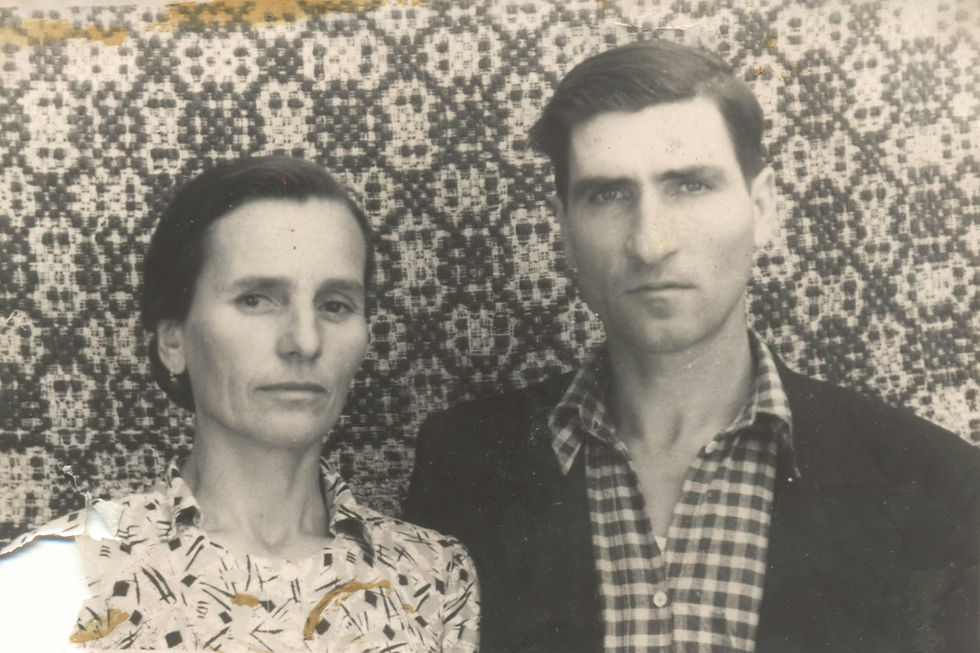When Survival Mode Overrides Your Common Sense
- Be Inspired For Real Bloggers

- Jul 21, 2025
- 4 min read
Updated: Jul 21, 2025

When common sense slips through our fingers and becomes anything but common, we find ourselves staring at painful realities that defy logic and shake our hearts. We want to believe that anyone in a harmful situation can simply choose to walk away, that love should never hurt, and that survival instincts should kick in when danger looms. Yet learned helplessness, Stockholm syndrome, domestic violence, and generational trauma teach us how even the most basic sense of self‑preservation can be stifled.
Learned Helplessness
Imagine someone who has been told, day after day, that they are worthless, that no one else would ever love them, or that seeking help will only make things worse. Over time, they stop believing they can change their situation. They feel trapped by their own thoughts, convinced that nothing they do matters.
This is learned helplessness in action—when repeated failures or threats teach a person to give up trying. It can make even the simplest act of self‑care feel impossible. When common sense says, “You deserve safety,” learned helplessness says, “You have no choice.”
“You may not control all the events that happen to you but you can decide not to be reduced by them.” — Maya Angelou

Stockholm Syndrome
In an extreme form of attachment, hostages can begin to identify with their captors. They defend abusers. They make excuses for cruel behavior. Stockholm syndrome reveals the profound strength of the human need for connection, even when that connection is deadly. A person in this state may insist they love the very person who put them in harm’s way.
Common sense tells us to fear the abuser. Yet the brain rewires itself to see the threat as a kind of care. Compassion is needed to reach someone who believes their own peril is proof of affection.
Domestic Violence
Every day, countless people choose to stay in violent relationships. A partner’s rage, presented as passion or jealousy, can become routine. Bruises are hidden, apologies are made, and the cycle repeats. Survivors often hear us say, “Why don’t you just leave?” However, the answers are often tangled in isolation, financial dependence, fear of retaliation, and concerns for children.
Colleen hid bruises under long sleeves and stayed silent because her abuser threatened her children’s safety if she spoke out. Every time she thought of leaving, fear paralyzed her. Yet when a neighbor quietly slid Proverbs 31:8–9 and a hotline number under her door, that simple act gave Colleen the courage to call for help and find a safe place for her family.“
“You are not a mistake. You are not a problem to be solved. You are valuable and worthy of love and belonging.” — Brené Brown
When someone clings to an abusive relationship, it may look like denial. In truth, it may be survival—numbing the mind so they can go on. Our compassion must be firm: we honor their courage even as we remind them they are worthy of love and safety.

Generational Trauma
Trauma passed down through families can feel like an invisible chain. A child who watches a parent endure violence or addiction may internalize the belief that pain is normal. That belief follows them into adulthood, making it harder to trust their own instincts.
Grandparents who could not show love because they had none usually pass that emptiness to the next generation. When common sense says “break the pattern,” generational trauma says “this is just how life is.” Acknowledging the weight of ancestral pain helps us offer healing rather than judgment.
“If anyone is in Christ, the new creation has come. The old has gone, the new is here.” — 2 Corinthians 5:17.
When Common Sense Is No Longer Common
You can’t pull someone to safety if they refuse to step forward on their own. After years of counseling, listening, and praying for someone caught in a toxic, abusive relationship, you’ve lost hope of seeing them break free. What do you say when they’re not ready or able to move on?
First, you say, “I see you. I hear you. I believe how hard this has been.” Compassion opens the door that logic cannot. Then you remind them of what common sense used to be: “You deserve more than pain. You have the right to hope for healing.” Finally, you set a boundary: “I cannot watch you suffer without letting you know I stand firmly for your safety and well‑being.”
We cannot force someone to change when their mind and heart have been reshaped by trauma. Yet we can shine a steady light (compassionate and stern), reminding them that common sense is not lost forever. It may be buried under fear, shame, or exhaustion. But with each gentle truth spoken and each boundary drawn, we carve a path back to self‑worth and clarity.
Healing from the deepest pain requires time, patience, and a supportive community. If you or someone you love is trapped by fear or trauma, reach out today.
This post is not a substitute for professional help. If you or someone you know is experiencing domestic abuse, please reach out to trained professionals right away. You deserve safety and support. If you are in immediate danger, call 911 or your local emergency number. For confidential help in the US, call the National Domestic Violence Hotline at 1‑800‑799‑SAFE (7233) or visit thehotline.org. You are not alone, and help is available.
Share your story below and inspire someone else.
Got a powerful story or faith journey to share? We’re always looking for fresh voices to inspire our readers. If you’ve got something real to say, we’re listening. Visit our Submissions page to learn how to become a guest contributor!




Comments